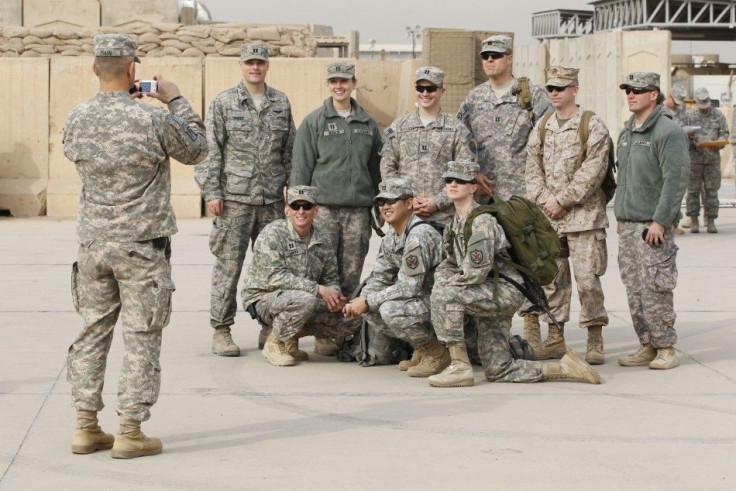'Don't Ask Don't Tell' Repeal Has Not Hurt Military: Study

Allowing gays and lesbians to openly serve in the U.S. military has not had any measurable negative repercussions, according to a comprehensive new study that contradicts the opinion of people who opposed the shift in policy.
President Obama successfully oversaw the repeal of "Don't Ask, Don't Tell," a Clinton-era policy that prohibited gay service members from discussing their sexual orientation. The rule was a top target of gay rights advocates, who contended that forcing gays and lesbians to either remain silent or face potential dismissal for speaking out was discriminatory.
On the other side of the argument were backers of Don't Ask, Don't Tell who said repealing the policy would undermine unit cohesion, damage morale and make Americans less likely to enlist. The new study, conducted by a group of experts that includes professors at prominent military academies, refutes those charges.
Not only has repeal not undermined morale, the authors found, but units with openly gay members seem to have experienced "greater openness and honesty" that fosters greater "understanding, respect and acceptance." The only two resignations linked to the repeal were chaplains, and the net effect on individuals appears neutral: While some service members who were personally opposed to the policy reported decreased morale, they were offset by soldiers who supported doing away with Don't Ask, Don't Tell.
That contradicts the warnings of repeal opponents who predicted that the military would struggle to attract recruits if gay and lesbian service members were allowed to serve openly. The authors quote a letter, signed by more than a thousand retired generals and admirals, who predicted that repeal would "eventually break the All-Volunteer Force."
To arrive at their finding, the authors observed military units in action, analyzed a wide array of articles and interviewed a range of people, from service members to activists and generals who openly opposed repeal.
© Copyright IBTimes 2024. All rights reserved.





















